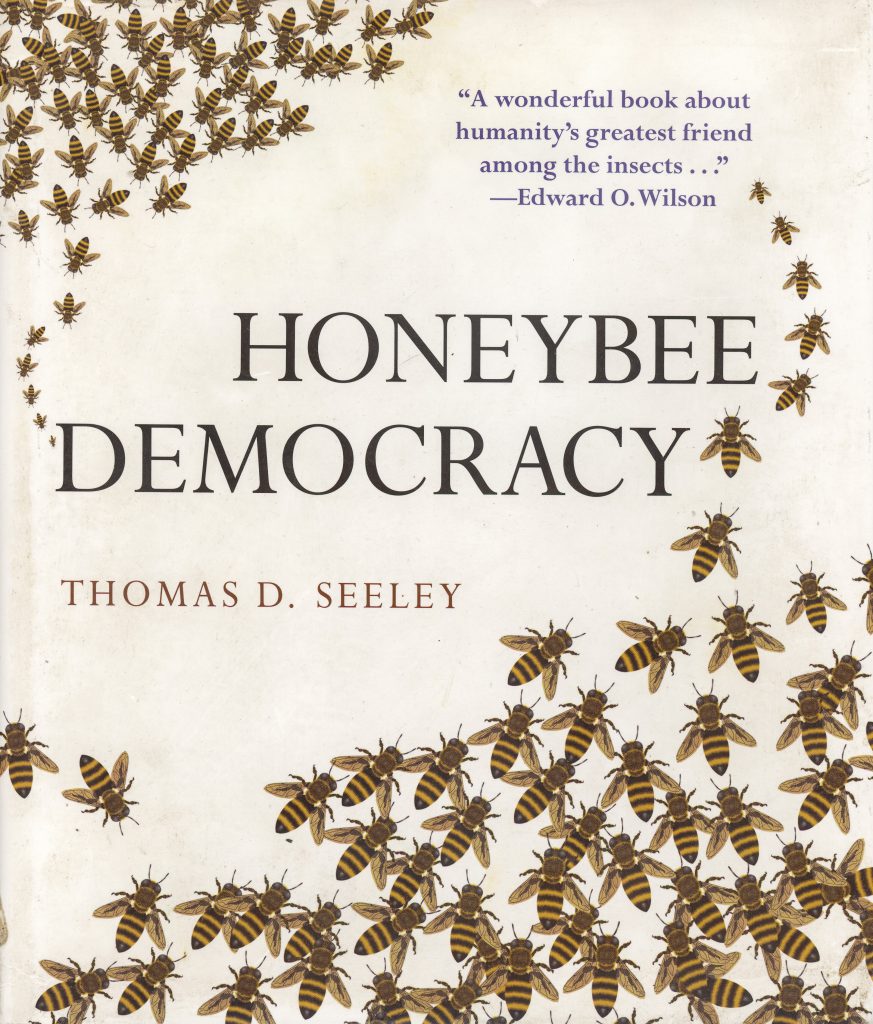First published: 2010.
Library copy published: 2010.

“… we will find it useful to compare what is known about the mechanisms of decision making in bee swarms and primate brains. This may seem a bizarre comparison, for swarms and brains are vastly different biological systems whose subunits—bees and neurons—differs greatly. But these systems are also fundamentally similar in that both are cognitive entities that have been shaped by natural selection to be skilled at acquiring and processing information to make decisions. Furthermore, both are democratic systems of decision making, that is, ones in which there are no central decider who possess synoptic knowledge or exceptional intelligence and directs everyone else to the best course of action.” p. 199
“Thus the house-hunting bees remind us that the leader in a democratic group serves mainly to shape the process, not the product, of the group’s deliberations. The bees also demonstrates that a democratic group can function perfectly well without a leader if the group’s members agree on the problems they face and on the protocol they will use to make their decisions.” p. 234
“For millions of years, the scout bees on honeybee swarms have faced the task of selecting proper homes for their colonies. Over this vast stretch of evolutionary time, natural selection has structure these insects search committees so that they make the best possible decisions. Now, at last, we humans have the pleasure of knowing how this ingenious process works, and the opportunity to use this knowledge to improve our own lives.” p. 236